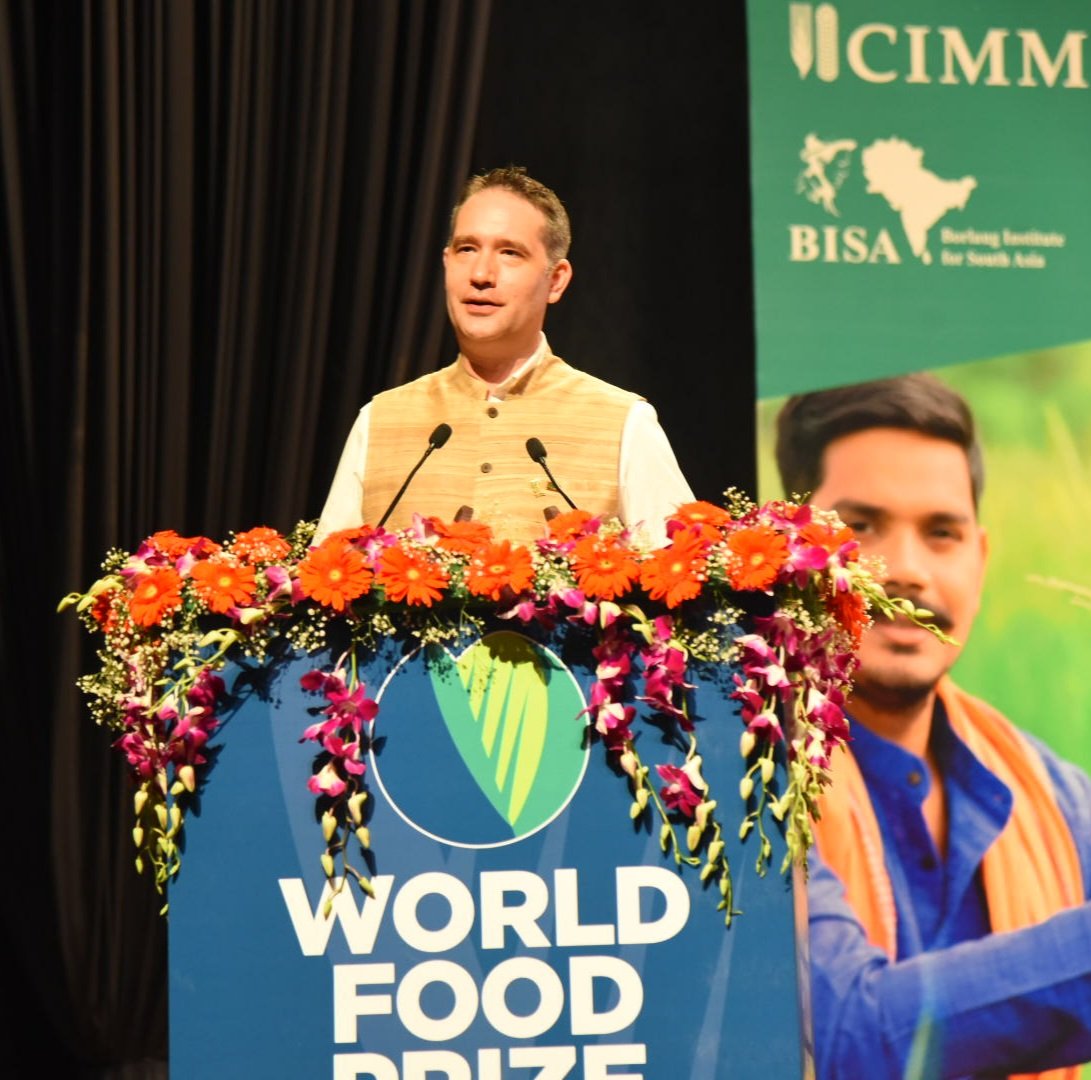Monday, 2 February 2026

With the world approaching what experts call a “hunger tipping point,” global agricultural leaders, policymakers, scientists, and farmers gathered in New Delhi today for DialogueNEXT, a two-day high-level conference designed to fast-track breakthrough innovations in food and agriculture.
Hosted at the ICAR Convention Centre, PUSA Campus, DialogueNEXT is organized by the World Food Prize Foundation in partnership with CIMMYT, the Borlaug Institute for South Asia (BISA), and the Indian Council of Agricultural Research (ICAR). This year’s theme, “Take it to the Farmer,” underscores the urgency of ensuring that science-led solutions not only exist but are deployed at scale, especially for smallholder farmers across the Global South.
India as a Global Innovation Hub
Opening the conference, Dr. Mangi Lal Jat, Secretary of the Department of Agricultural Research and Education and Director General of ICAR, said India is uniquely positioned to catalyze a farmer-first agricultural transformation. Emerging global megatrends, he noted, are posing complex challenges to agri-food systems and demand smallholder-centric, systemic solutions and their accelerated uptake. He stressed that India’s agricultural transformation is occurring at a faster pace than ever before, allowing the country to serve as a smallholder agriculture innovation hub for the Global South — provided there are greater investments in cutting-edge science, breakthrough innovations, and strong partnerships spanning the entire discovery-to-delivery pipeline.
The event coincides with World Agriculture Day and celebrates India’s legacy as the epicenter of the Green Revolution. Dr. Nicole Prenger, Senior Director of Global Programs and Strategic Communications at the World Food Prize Foundation, tied the gathering to that historic moment, recalling that it has been 60 years since Norman Borlaug’s semi-dwarf wheat transformed Indian agriculture, doubling production in less than a decade and averting famine. She described DialogueNEXT as a “modern moonshot” to mobilize urgent, collective action to sustainably feed a growing global population.
From Mexico to New Delhi: Building a Farmer-First Agenda
DialogueNEXT builds on last year’s inaugural event in Mexico, continuing its mission to ensure that innovations — from climate-resilient seeds and regenerative farming practices to digital traceability and AI-powered advisory systems — reach farmers at scale. The focus is on affordability, accessibility, and adoption, with an eye toward transforming food systems while boosting farmer livelihoods.
Dr. Bram Govaerts, Director General of CIMMYT and the Borlaug Institute for South Asia, underscored the importance of India’s role in this mission. He said India’s leadership and innovations are essential to unlocking productivity, sustainability, and access across every link in the agri-food value chain. DialogueNEXT, he added, is designed to connect the dots between science, policy, and business and to mobilize the support needed to scale solutions beyond India, throughout South Asia, and across the world.
Global Participation and High-Level Delegations
DialogueNEXT 2025 is attracting a truly global audience, drawing senior government officials, scientists, and agricultural leaders from across Asia, Europe, and the Americas. Among the participants are Thinley Namgyel, Secretary of Agriculture and Livestock for Bhutan; Govinda Prasad Sharma, Secretary of Agriculture and Livestock Development for Nepal; and Máximo Torero Cullen, Chief Economist of the Food and Agriculture Organization of the United Nations. A high-level U.S. delegation from Iowa is also present, featuring Governor Kim Reynolds, Iowa Secretary of Agriculture Mike Naig, and Brent Johnson, President of the Iowa Farm Bureau Federation.
Together, these leaders are engaging in deep, action-oriented dialogues on how to achieve food system transformation while addressing climate risk, farmer livelihoods, and supply chain resilience.